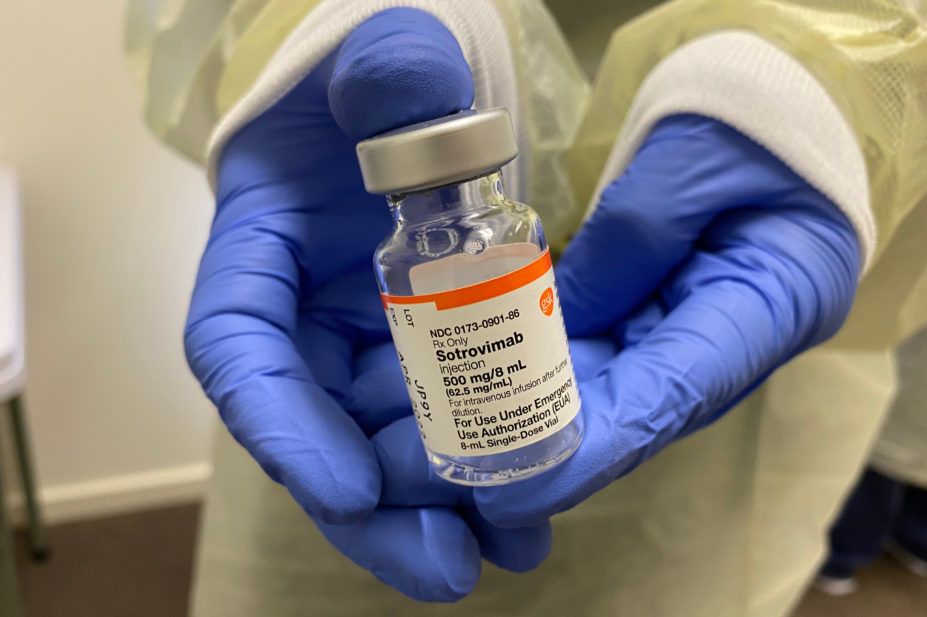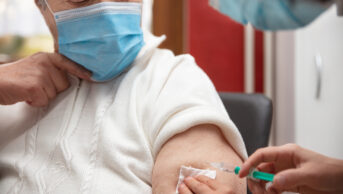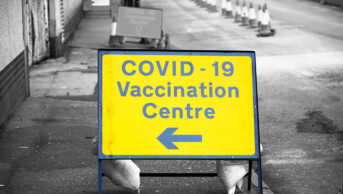
Shutterstock.com
The Medicines and Healthcare products Regulatory Agency (MHRA) has approved the monoclonal antibody treatment sotrovimab (Xevudy; GSK and Vir Biotechnology) for people with mild-to-moderate COVID-19 and at least one risk factor for developing severe illness.
Sotrovimab is the second monoclonal antibody treatment approved by the MHRA but, unlike the monoclonal antibody cocktail ronapreve, which was approved in August 2021, sotrovimab is a monotherapy. It is taken as an intravenous infusion over 30 minutes.
In a statement on the 12 November 2021, GSK said clinical trial results showed that a single dose of sotrovimab reduced the risk of hospitalisation and death by 79% in COVID-19 patients with risk factors, such as obesity or diabetes, compared with the placebo group. The full trial results have not been made public or peer reviewed.
These data also indicated that sotrovimab was most effective when taken during the early stages of infection, therefore the MHRA has recommended that it is used within five days of symptom onset.
Monoclonal antibody treatments work by binding to the spike protein on the outside of the COVID-19 virus, which prevents the virus from attaching to and entering human cells, so that it cannot replicate in the body.
Munir Pirmohamed, chair of the Commission on Human Medicines, said: “The Commission on Human Medicines and its COVID-19 therapeutics expert working group has independently reviewed the data and agrees with the MHRA’s regulatory approval of Xevudy (sotrovimab).
“When administered in the early stages of infection, sotrovimab was found to be effective at reducing the risk of hospitalisation and death in high-risk individuals with symptomatic COVID-19.
“Based on the data reviewed by the commission and its expert group, it is clear sotrovimab is another safe and effective treatment to help us in our fight against COVID-19.”
Penny Ward, an independent pharmaceutical physician and visiting professor in pharmaceutical medicine at King’s College London, described the approval as “good news”.
“In the phase III clinical trial COMET-ICE, sotrovimab — given within five days of first onset of symptoms — reduced the rate of hospitalisation and death among a population of high-risk patients from 6% to 1%, with an adjusted proportionate reduction of 79%, mostly driven by a reduced need for hospitalisation,” she added.
Ward highlighted that administering the drug could provide a challenge in the community as it is administered intravenously but said there were options for it to be administered in infusion hubs and hospital outpatient facilities.
“Side effects are limited to infusion reactions, which may rarely include anaphylaxis, and so must be given in a setting where resuscitation facilities are available,” she said.
In its statement, the MHRA said it was “too early to know” if the new omicron variant of SARS-CoV-2 would have any impact on the effectiveness of sotrovimab, but said it would work with manufacturers GSK and Vir Biotechnology to establish this.
“Initial information demonstrates broad activity against most variants,” said Ward.
“As some of these share some (but not all) of the mutations noted in the omicron variant, it is reasonable to anticipate that it may retain antiviral effect against this strain also. However, this needs to be formally demonstrated in vitro.”
The MHRA added that the government and the NHS would confirm how the treatment would be deployed to patients “in due course”.
Which patients are suitable for monoclonal antibody treatment?
In a UK-wide clinical commissioning policy, published on 17 September 2021, the patients initially eligible to be considered for treatment with the monoclonal antibody cocktail ronapreve (casirivimab with imdevimab) included hospitalised patients who had confirmed COVID-19, were hospitalised specifically for the management of acute COVID-19 symptoms, did not have an adequate existing antibody response to the SARS-CoV-2 virus, and were either aged 50 years and over, or aged 12–49 years and determined to be immunocompromised.
However, a COVID-19 therapeutic alert, published on 4 November 2021, highlighted that the recommendation had been expanded to include patients with hospital-onset COVID-19 and those hospitalised for acute COVID-19 illness.
NHS documents seen by The Pharmaceutical Journal in June 2021 revealed that the monoclonal antibodies could eventually be administered to vulnerable patients at home, with pharmacists possibly among the clinicians that assess vulnerable patients for their suitability for treatment with monoclonal antibodies. However, details on this are yet to be confirmed.
The papers also detailed a discussion on “prioritisation of patient cohorts” and noted a “consensus” that this should be based on the potential benefits and risks, with patients that have an impaired immune response or who are unvaccinated prioritised.
Read more: Everything you need to know about the COVID-19 therapy trials


